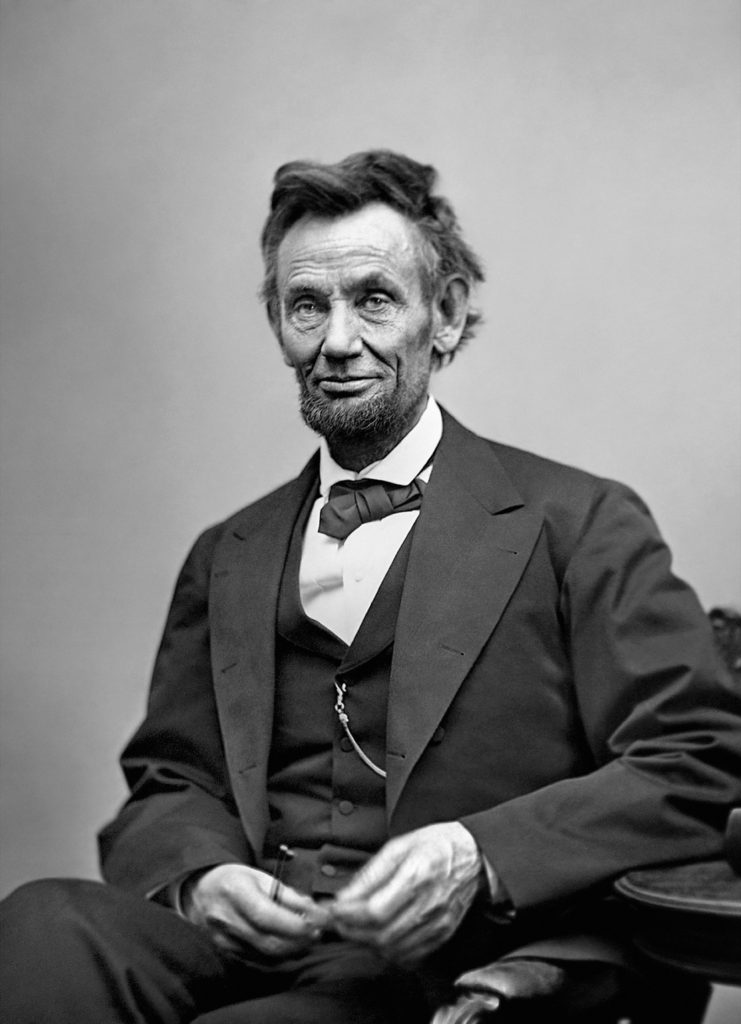Keeping a book on Abraham Lincoln cued up in the Kindle produces a steady drip or two of inspiration at your convenience. Reading about him, his motivations, and his ambitions is like taking a coffee break to refuel on motivation and purpose. What better time of the year than the 4th of July to take a few sips of the proverbial cup of joe.
I just finished reading Ronald White’s Lincoln in Private. White excavated 111 of these private notes and placed context and proximity to a date behind each note. There were three around failure, ambition, and country important to highlight.
First, in a stunning admittance of failure only 4 years before elected President of the United States, Lincoln compares himself to Judge Stephen Douglas – his clear rival, transmuted into arch-nemesis during the Lincoln-Douglas debates only a few years after this note.
The note says:
“Twenty-two years ago, Judge Douglas and I first became acquainted. We were both young then; he a trifle younger than I. Even then, we were both ambitious; I, perhaps, quite as much so as he. With me, the race of ambition has been a failure – a flat failure; with him it has been one of splendid success. His name fills the nation; and is not unknown, even, in foreign lands. I affect no contempt for the high eminence he has reached. So reached, that the oppressed of my species, might have shared with me in the elevation, I would rather stand on that eminence, than wear the richest crown that ever pressed a monarch’s brow.“
This is four years before Abraham Lincoln is elected President of the United States.
Lincoln had his trials and setbacks; yet he was still an accomplished lawyer and former representative in the Illinois General Assembly first winning the seat in his early 20’s. In the announcement of him entering the race, he stated in the Springfield Sangamo Journal the following about his ambition to run:
“Every man is said to have his particular ambition. Whether it be true or not I can say for on that I have no other so great as that of being truly esteemed of my fellow men, by rendering myself worthy of their esteem. How far I shall succeed in gratifying this ambition, is yet to be developed.”
White goes on to elaborate how Lincoln was a “self-constructed” individual. This is someone who shapes or reshapes their character by values to live by including courage, integrity, truthfulness, and any others that a “self-constructed” individual prioritizes. “Self-constructed” is similar to a “self-made” individual yet in the terms of character versus economic advancement.
Finally, to get a sense of Lincoln’s internal strife – and pull – to leave a legacy suitable to his personal ambitions, in 1851, he told his career-long law partner, Herndon:
“Oh how hard it is to die and leave one’s Country no better than if one had never lived for it.”

When reading Lincoln In Private, these specific highlights stood out for three reasons.
First, play the long game not only in your career but in your relationships. Lincoln met Douglas 22 years before his self-admitted failure. If you have conviction in how the world should be, stick to it regardless of pre-existing failures. Before Lincoln hit the national scene he tried several times, through the Whig party to develop political momentum and influence. Lincoln was admitting himself a failure four years before being elected President. Keep paddling.
Two, the “self-constructed” individual is an interesting way to reframe personal development. Regardless of big wins or loses in one’s life or career, a “self-constructed” individual is always seeking to improve their character, education, and advancements.
Third, particularly on the 4th of July, it’s important to never forget the opportunities, we as Americans have today, due to the mindset of generations before us. Lincoln’s pain-staking desire to leave his country better than before is a reminder about him and the millions of Americans who’ve had that purpose — even at the expense of death.
Reading several of Lincoln’s notes in private was an insightful look into how his mind worked and what made the man we all know of today.
